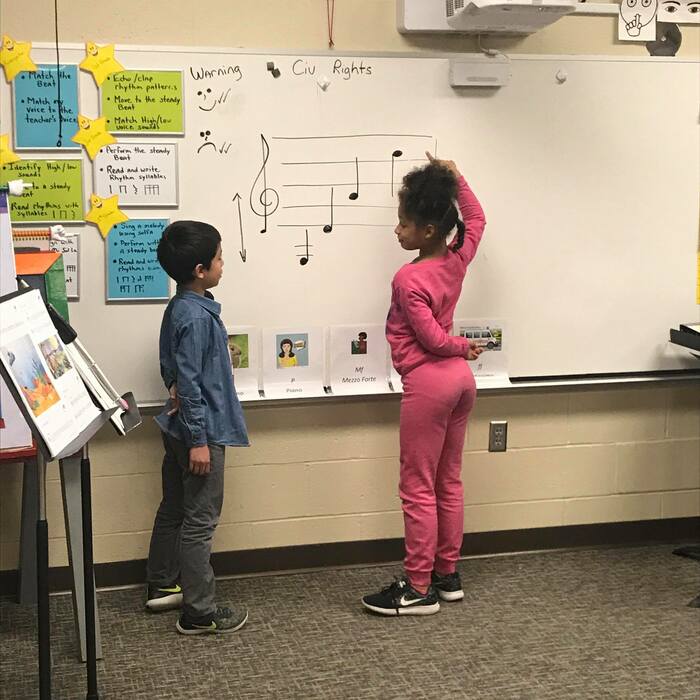Music education goes beyond the fun and joy of singing and dancing. It plays a vital role in overall development, enhancing various aspects of physical, cognitive, emotional and social growth. Here are eight incredible benefits of music education for young children.

- Cognitive Development: Engaging in music education stimulates the brain, enhancing memory, attention and problem-solving skills. Learning to read music and play instruments fosters cognitive abilities, contributing to improved academic performance.
- Emotional Expression: Music provides an outlet for children to express their emotions. Whether through singing or playing instruments, they can help them develop emotional intelligence and coping mechanisms.
- Language Skills: Music and language are closely intertwined. Early exposure to music helps young children develop phonetic awareness, vocabulary, and language processing, which leads to better communication and literacy skills.
- Coordination & Motor Skills: Playing musical instruments or participating in dance activities helps improve hand-eye coordination and motor skills. These physical movements enhance dexterity and overall physical development.
- Creativity & Imagination: Music ignites creativity and imagination in young minds. By exploring different sounds, rhythms and melodies, children are encouraged to think outside the box and come up with their own musical expressions.
- Confidence Building: Performing in front of an audience, even if it's just parents and teachers, boosts a child's self-confidence. Music education teaches the value of practice and hard work.
- Social Skills: Music education often involves group activities and ensemble performances. Through collaboration and cooperation with peers and instructors, children learn important social skills like teamwork, empathy and respect for others' ideas and contributions.
- Stress Relief & Well-Being: Music has a calming effect on young minds and can act as a stress-reliever. Listening to soothing melodies or engaging in musical activities can reduce anxiety and promote overall well-being.
Music education is not just about nurturing future musicians; it offers an array of benefits that positively impact a child's holistic development. By incorporating music into early childhood education, parents and educators can lay a strong foundation for their future success, well-being and happiness.


